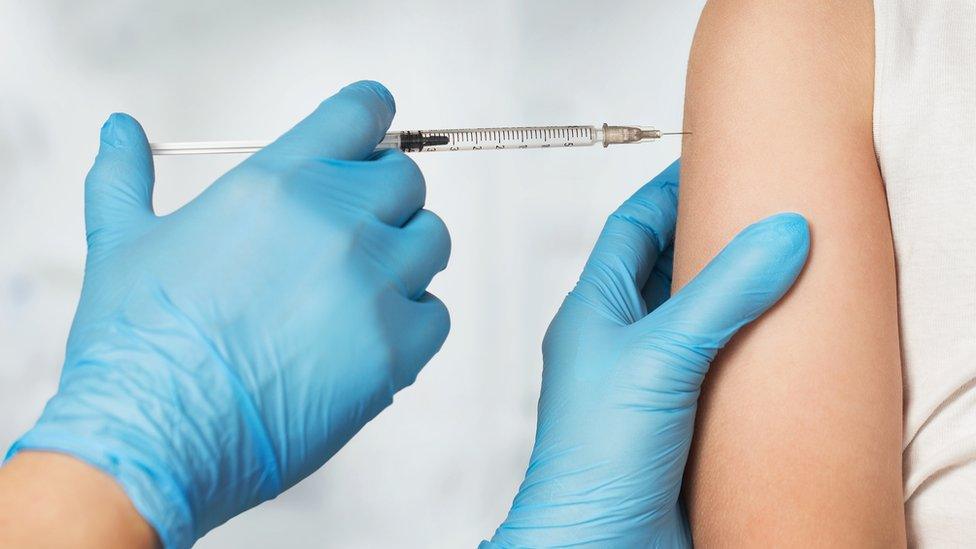Sharp rise in mumps cases in Northern Ireland
- Published
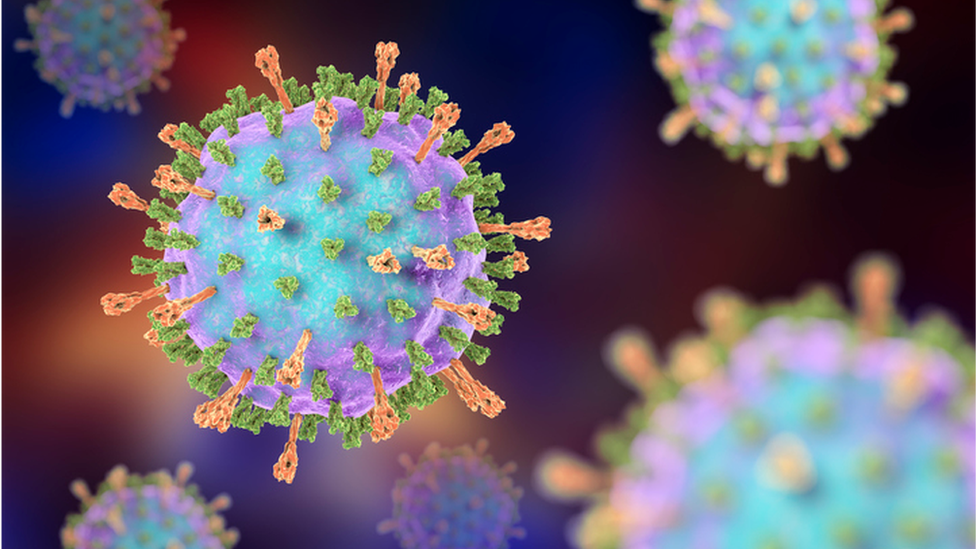
There has been a sharp rise in cases of mumps in Northern Ireland since the start of 2019.
The Public Health Agency (PHA) has confirmed 198 cases of the illness since 1 January.
This is almost three times the number of cases confirmed by the PHA in 2018, when there were 66 laboratory-confirmed incidents of mumps, compared to 191 in 2017.
Mumps is a contagious viral infection that causes swelling of the glands.
According to the PHA, mumps mainly affects young adults and 53% of cases in 2018 were in the 15-24-year age group. The majority of those affected (79%) had received two doses of the MMR (measles, mumps and rubella) vaccination.
A PHA spokesperson said it was unclear why vaccinated people still get mumps during an increase in cases, but emphasised that those who have had two doses of the vaccine have an 88% reduction in risk for the disease and associated complications.
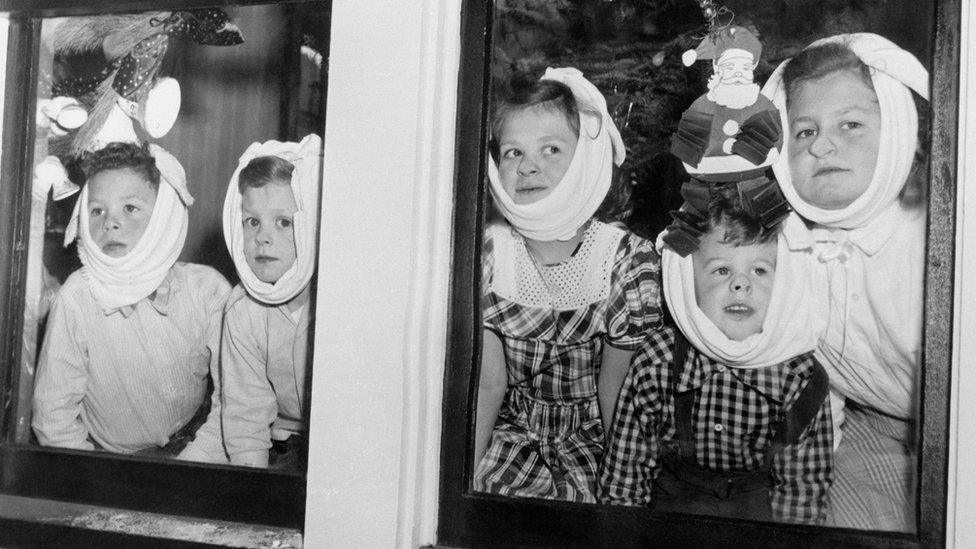
Mumps was once common in children before vaccinations began in the 1980s
Parents of a County Down secondary school have been advised about several cases of mumps among pupils.
Since March, there have been three confirmed cases and 12 suspected cases among students at De La Salle High School in Downpatrick, according to its principal, Ciaran Maguire.
Mr Maguire said incidents of the illness had caused concern for parents, students and staff.
He said he was particularly concerned about the lack of clarity around the 12 suspected cases, which he had been alerted to by parents.
"There has been a lack of information about whether or not these cases are confirmed. Parents are left confused about whether their son has mumps or not," he said.
Mr Maguire added that he would like to receive direct confirmation from GPs about whether or not suspected cases were confirmed, rather than receiving the information second hand.
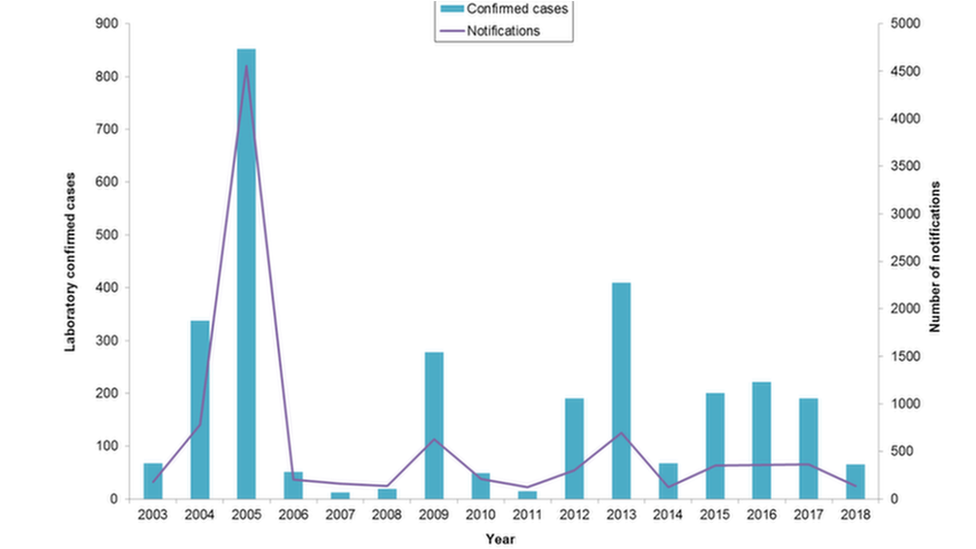
Notifications and laboratory confirmed cases of Mumps, 2003-2018, Northern Ireland (note: different scale used)
"The Public Health Agency confirms positive cases of mumps to me," said Mr Maguire. "It's the 'maybes' that leave people, parents and the school, confused."
One parent associated with the school, who asked not to be named, said he was concerned that additional cases of the illness had been reported this week.
"I thought this had been sorted out after we received the first message from the school weeks ago, so it is slightly alarming to hear there have been further cases," he said.
"Parents need to be told very clearly what they need to do."
The PHA confirmed it had been liaising closely with a school in the South Eastern Trust area - which covers Downpatrick - where there had been several confirmed cases of mumps since January.
A PHA spokesperson said there had been a steady rise in the number of cases detected in many countries across Europe and the rest of the world, although the number of cases of mumps had "dramatically fallen" since the MMR vaccination was introduced to children in Northern Ireland in 1988.
In March, there was a confirmed outbreak of mumps at two universities in England.
How to protect against catching the disease?
Dr Muhammad Sartaj, consultant in health protection at the Public Health Agency, said ensuring children have had two doses of MMR vaccine was the best protection against the disease.
The NHS says, external the vaccine is part of the routine childhood immunisation schedule.
"Thanks to the high proportion of people in Northern Ireland making the positive decision to get the MMR vaccine, cases of measles, mumps and rubella have fallen significantly," he said.
"However, although the number of people contracting these diseases is still low, they have not gone away and in some countries a rise in cases is being experienced.
"Children should receive one dose of MMR just after their first birthday and a second dose at three years and four months of age.
"If you haven't had your kids vaccinated, contact your GP surgery to make arrangements for them to get the MMR and help to provide them and those around them with the best protection."
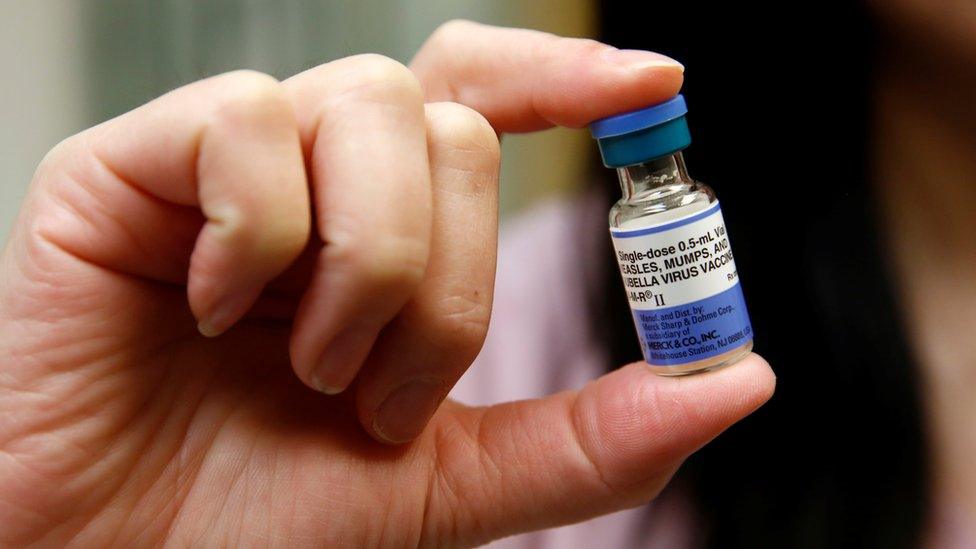
Uptake of the measles, mumps, and rubella virus (MMR) vaccine has gone down in recent years

What is mumps and how does it spread?
Mumps is a contagious viral infection that causes painful swellings at the side of the face under the ears.
General symptoms of mumps can include headache, joint pain and a high temperature a few days before the swelling.
Most people fully recover from mumps within a few weeks although a few will develop more serious complications.
It is spread in the same way as colds and flu and a person is most contagious a few days before the symptoms develop and for a few days afterwards.
The PHA advises anyone with suspected mumps to contact their GP so a diagnosis can be made.
The agency also advises anyone with mumps to avoid school or work for at least five days after symptoms first develop, and to:
Regularly wash your hands with soap and water
Use and dispose of tissues when you sneeze
Avoid sharing drinks and food
Why is uptake of the MMR vaccine declining?
The reason for the declining uptake of the MMR vaccination in many countries is not clear.
An anti-vaccine movement has gained popularity due to the work of discredited scientist and struck-off medic Andrew Wakefield.
In 1998, he led a study that linked the MMR vaccine to autism, impacting on the coverage of the vaccine, with rates dropping to about 80% in the late 1990s and a low of 79% in 2003.

The GMC ruled that Andrew Wakefield acted "irresponsibly" in carrying out his research
Rates partially recovered after the research was disproved but the volume of anti-vaccine sentiment on social media has increased in recent years.
This led former Health and Social Care Secretary Matt Hancock to call for new laws to force social media companies to remove content that promoted false information about vaccines.
Can you catch it if you have been vaccinated?
Yes. Teenagers and young adults who have not had two doses of the MMR vaccine are deemed "particularly vulnerable".
According to the PHA, it is not clear why vaccinated people still get mumps - it could be that their immune system did not respond as well as it should have to the vaccine, or their immune system's ability to fight the infection has decreased over time.
However, disease symptoms are milder and complications are less frequent in vaccinated people.
Some experts view the mumps part of the vaccine as the "least effective" - protecting 88% of vaccinated people from infection, as opposed to the measles vaccine which protects from 98% of cases.
As the number of cases of infected people rises, so do the chances of spreading the disease to unvaccinated people and those vaccinated for whom the MMR has not been effective.
- Published26 March 2019
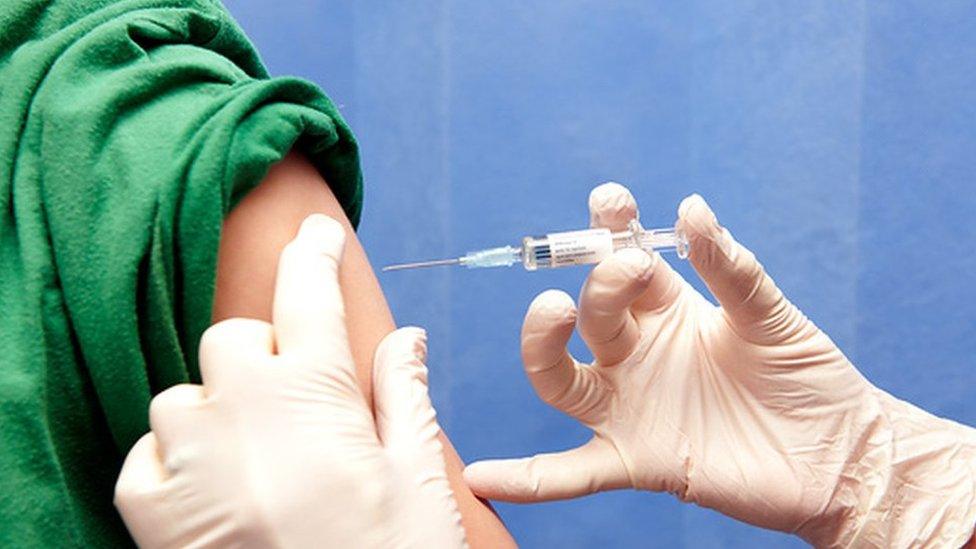
- Published27 March 2019
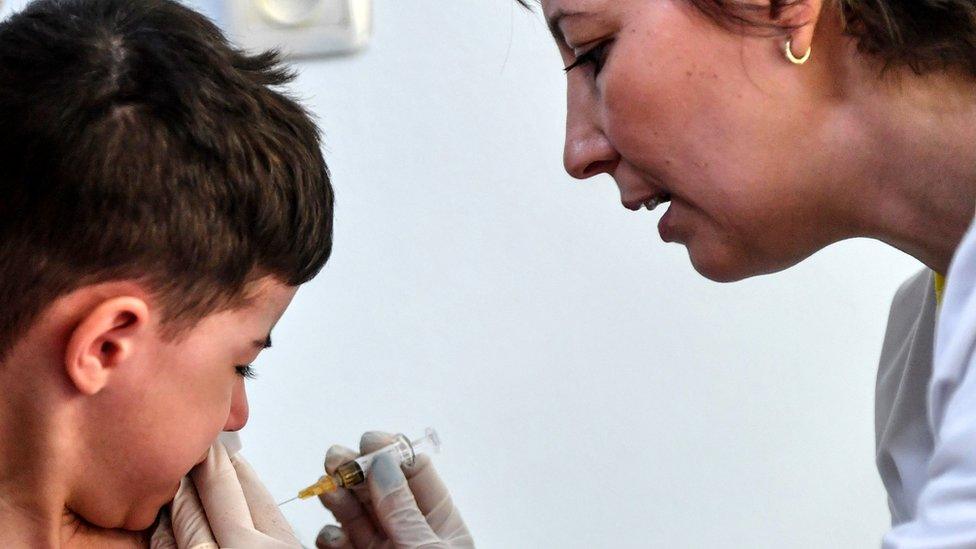
- Published26 March 2019
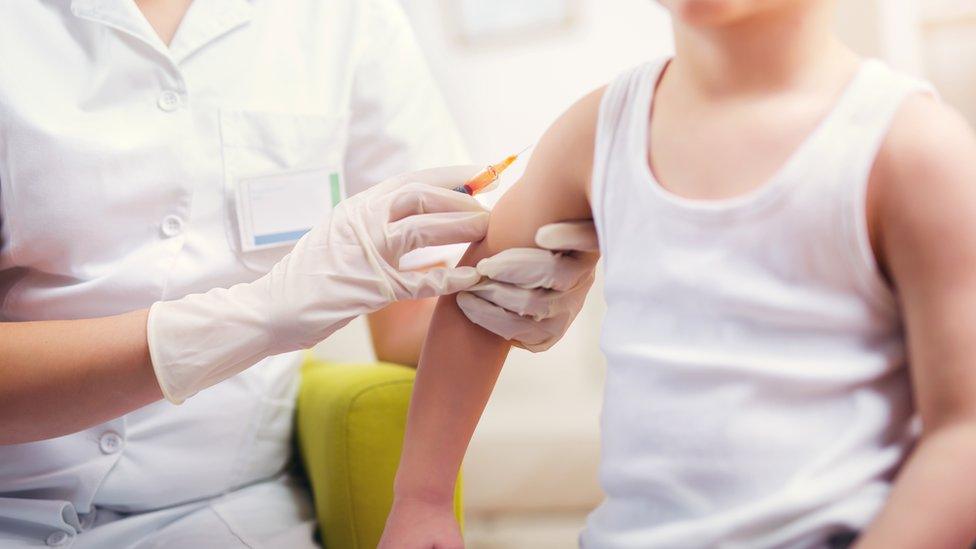
- Published1 March 2019
